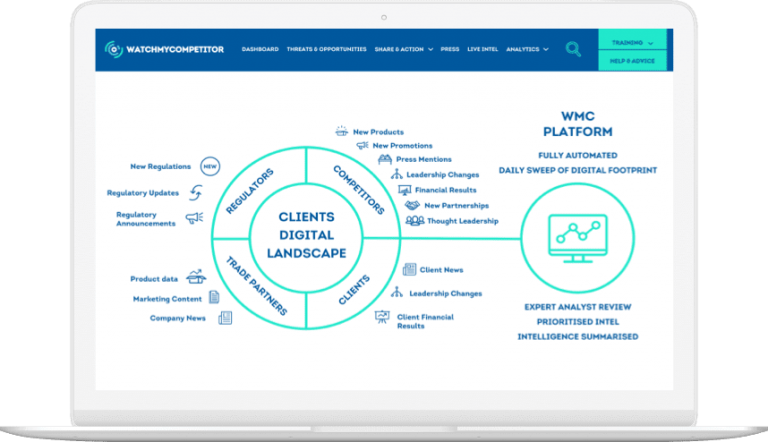As the global market becomes increasingly competitive, the significance of market research cannot be understated. Businesses today must understand their target audience, competitors, market trends, and more to gain a competitive edge.
Market research plays a crucial role in helping businesses make informed decisions and stay ahead in today’s competitive landscape. However, it’s essential to weigh the advantages and disadvantages of market research before investing considerable company time and resources.
In this article, we will explore the benefits and drawbacks of market research. We’ll also look at primary market research advantages, as well as those of secondary market research.

What Is Market Research
Market research refers to the process of gathering and analysing data about customers, competitors, and market trends to gain insights and make informed business decisions. It helps businesses understand their target audience, identify opportunities, and develop effective marketing strategies.
Market Research Advantages
While there are advantages and disadvantages of market research, we’re going to focus on the advantages first.
Market research offers several advantages for businesses seeking to thrive in the marketplace. By understanding the advantages, companies can leverage market research to gain a competitive edge. Let’s take a look at the main ones that you need to be aware of:
1) Informed decision making
One of the primary market research advantages is informed decision-making. By conducting thorough research, businesses gain valuable insights into customer preferences, needs, and behaviours.
This knowledge empowers them to make informed decisions regarding product development, pricing strategies, and marketing campaigns. With market research, businesses can identify market gaps, understand consumer demand, and tailor their offerings to meet customer needs.
2) Targeted marketing
Market research enables targeted marketing efforts. By understanding the target market, businesses can tailor their marketing messages and strategies to resonate with specific customer segments. This leads to more personalised and effective marketing campaigns, resulting in higher customer engagement and conversion rates.
Market research helps businesses identify the most appropriate marketing channels, messaging, and positioning to reach their target audience effectively.
3) Gaining a competitive advantage
Market research provides businesses with a competitive advantage. By monitoring industry trends, customer preferences, and competitor strategies, companies can identify gaps in the market and develop unique selling propositions. This differentiation helps them stand out from the competition and attract customers.
Market research enables businesses to stay updated on industry developments, anticipate market shifts, and proactively adapt their strategies to stay ahead.
Market Research Disadvantages
While there are important market research advantages, it’s equally important for businesses to be aware of the potential drawbacks. We’ll now examine common drawbacks that most organisations need to take into consideration:
1) Cost and Time
The first disadvantage is the cost and time involved. Conducting market research can be expensive and time-consuming, especially for small businesses with limited budgets and resources. The process involves data collection, analysis, and interpretation, which requires investments in terms of time, staffing levels, and technology.
Small businesses may need to carefully allocate their resources to ensure an effective and efficient research process.
2) Data accuracy
The second disadvantage is the potential for data accuracy and reliability issues. The quality of market research data heavily relies on the data collection methods and sample size. If not conducted carefully, there is a risk of obtaining biased or inaccurate data, leading to faulty insights and misguided decisions.
Businesses need to ensure the use of reliable research methodologies, proper sampling techniques, and rigorous data analysis to minimise inaccuracies.
3) Information overload
The third disadvantage is the potential for information overload. With the abundance of data available through market research, businesses may face the challenge of processing and analysing large volumes of information. Without proper analysis tools and expertise, it can be overwhelming to extract actionable insights from the data.
Businesses need to focus on extracting the most relevant and meaningful insights from the research findings to guide their decision-making processes.
Does it Differ for Primary and Secondary Market Research?
There will be differences when it comes to the advantages and disadvantages of market research depending on whether you’re using primary or secondary market research. We’re going to consider these differences now.
Primary market research advantages & disadvantages
Primary market research involves collecting new data directly from the target audience. Let’s explore the pros and cons:
Pros:
- Provides first-hand and specific data tailored to the research objectives.
- Allows businesses to gather unique insights directly from customers.
- Provides more control over the research process and data quality.
Cons:
- Time-consuming and expensive compared to secondary research.
- Requires resources for survey design, data collection, and analysis.
- A limited sample size may not represent the entire target market.
Secondary market research advantages & disadvantages
Secondary market research involves analysing existing data and information. Here are the pros and cons:
Pros:
- Cost-effective compared to primary research.
- Provides access to a wide range of existing data and industry reports.
- Allows for quick analysis and benchmarking against competitors.
Cons:
- May not provide specific or up-to-date information tailored to the research objectives.
- The reliability and accuracy of secondary data sources may vary.
- Limited control over the data collection process.
How WatchMyCompetitor Can Solve Your Market Research Problems
WatchMyCompetitor is a competitor intelligence platform that helps businesses track their competitors’ global digital footprint in real-time. The platform provides a wealth of information, including the following:
- Social media engagement
- Product and pricing changes
- Marketing campaigns
- Press coverage
This information can be used to identify competitors’ strengths and weaknesses, track their progress, and develop strategies to stay ahead of the competition.
Here are some of the ways that WatchMyCompetitor can solve market research problems for businesses:

– Identifying competitors: WatchMyCompetitor can help businesses identify new competitors, both direct and indirect. This is important for businesses that want to stay ahead of the competition and identify new opportunities.
– Understanding competitors’ strategies: The platform can help businesses understand their competitors’ strategies, including their product development, marketing, and pricing strategies. This information can be used to develop strategies to compete effectively.
– Tracking competitors’ progress: WatchMyCompetitor can help businesses track their competitors’ progress, including their website, social media engagement, and products. This information can be used to identify opportunities to improve your own business.
– Developing strategies to stay ahead of the competition: Finally the platform can help organisations develop strategies to stay ahead of the competition. It does this by helping businesses identify new opportunities, develop new products and services and optimising existing marketing and sales strategies.
Overall, WatchMyCompetitor is a powerful platform that can help businesses solve market research problems. By providing a wealth of information about competitors, the platform can help businesses identify strengths and weaknesses, track progress, and develop strategies to stay ahead of the competition.
Final Thoughts
Market research provides significant advantages for businesses, such as informed decision-making, targeted marketing, and a competitive edge. However, it’s crucial to consider the potential disadvantages, including cost, data accuracy, and information overload.
By leveraging primary and secondary research methods effectively, and utilising tools like WatchMyCompetitor, businesses can maximise the benefits of market research and drive their success in the marketplace.
FAQs About Market Research Advantages & Disadvantages
1) Why is market research important for my business?
Market research provides insights into your customers’ needs and preferences, competitive landscape, market trends, and more. These insights can guide your business strategy, from product development to branding and marketing, helping you make informed decisions and increase business success.
2)How can I overcome the disadvantages of Market Research?
You can overcome these disadvantages by planning your research efficiently, outsourcing to professionals, using a mix of primary and secondary research, and utilizing technology to manage and analyze data.
3) Can small businesses also conduct market research?
Yes, small businesses can and should conduct market research. While budget may be a concern, there are cost-effective ways to conduct market research such as online surveys, utilizing free or affordable data analysis tools, and conducting simple competitor analysis.
Lorem ipsum dolor sit amet, consectetur adipiscing elit. Ut elit tellus, luctus nec ullamcorper mattis, pulvinar dapibus leo.
4) What are some of the most common market research methods?
Some of the most common market research methods include:
- Surveys
- Interviews
- Focus groups
- Online research
- Social media research
5) What are some of the ethical considerations of market research?
Market research can be a powerful tool, but it is important to use it ethically. Some of the ethical considerations of market research include:
- Obtaining informed consent from participants
- Protecting the confidentiality of participants’ data
- Avoiding deception or manipulation
- Using market research for good, not for harm

